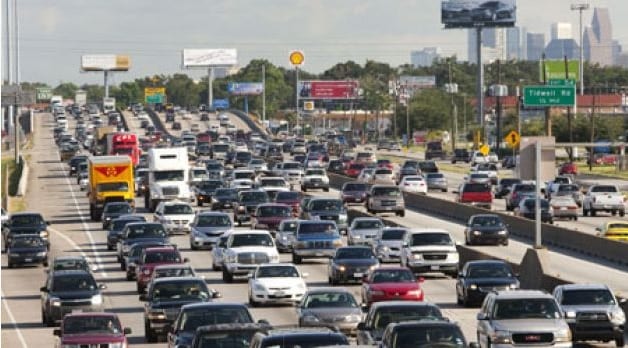Could Worsening Traffic Congestion Hinder Texas Growth?
If you asked most people "what is the life-blood of Texas?" The first answer they would probably give you is "oil". "Water" or "money" could likely come in as other popular answers.
The answer that more people need to consider? The life-blood Texas, or of any state is roads. Everyone in the Lone Star State depends … Continue Reading ››
